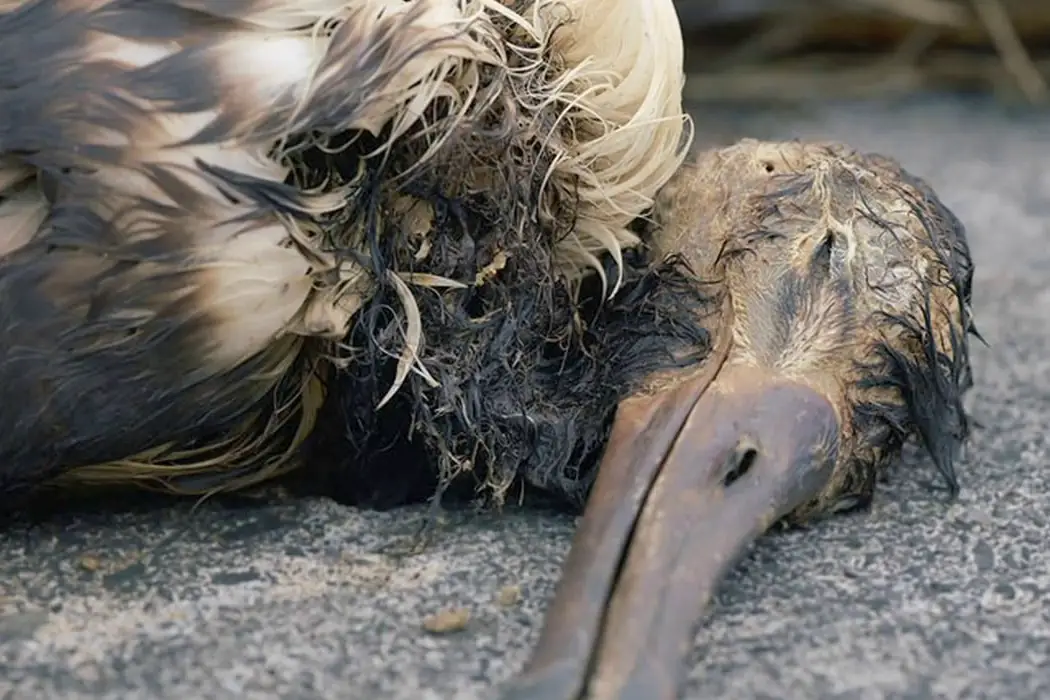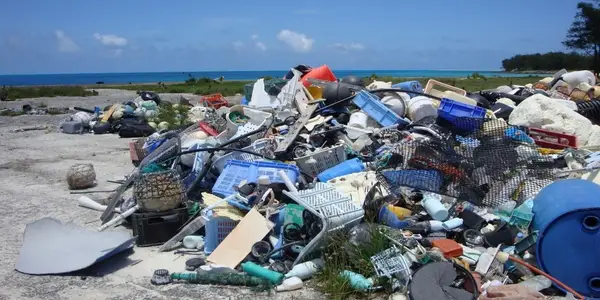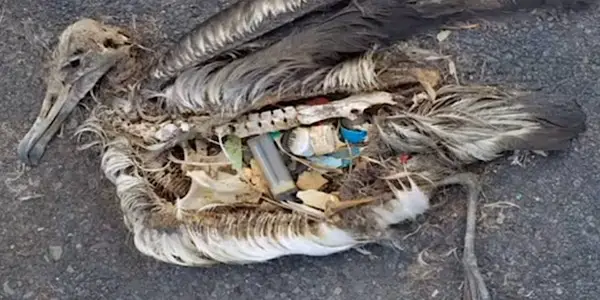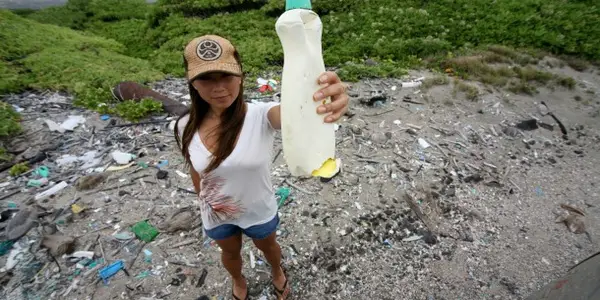PLASTIC PARADISE: It Never Goes Away, So Where Does It Go?

Whilst the introduction of a charge for plastic shopping bags was met with groans of annoyance, Plastic Paradise: The Great Pacific Garbage Patch is a great showcase as to why the discouragement of unnecessary over consumption of these types of goods is needed. Journalist, Angela Sun has created an insightful environmental documentary that shines a spotlight on the problems that our society has created and its impact on the world in which we live.
The Environmental Impact
Its unapologetic and honest approach is palpable from Plastic Paradise‘s beginning, opening with the dissection of a dead bird, its stomach filled with plastic objects which are subsequently removed. Due to the nature of the material it is composed of, plastic arguably never decomposes – taking approximately 450 years for a plastic bottle, dependent on size. Whilst you may have encountered the scattered residue on beaches around the world, this film examines the actual magnitude of the problem. A problem that has amalgamated into a plastic floating continent in the south Pacific – The Great Pacific Garbage Patch.

The trash mass is an area ranging from double the size of Texas to the entire United States. This is ultimately a very rough approximation due to its partial submergence, just below the surface. Without sailing through and having a net, it goes by unnoticed. ‘Trash Islands’ predominant component is micro-plastics, non-biodegradable small fragments that prove a huge problem for animal life.
There is also the additional issue, that the plastic is chemically treated and in turn eaten by the fish, which are then consumed by people. When ingested on a regular basis, this becomes a problem. What’s thought of as a healthy alternative to meats like chicken or beef, becomes problematic. Not to mention, the chemicals impact on the oceans’ plant life and coral reefs which are slowly but surely ravaging their dwindling numbers.
Who are to blame? The main culprits are made up of Exxon Mobil, Dupont and Dow Chemical. Perhaps the biggest contributor to the problem is the American Chemistry Council, who have actively down-played the repercussions of dealing with these chemicals emanating from the plastic.
A Force for Change
Taking on the role of director, writer and protagonist, Angela Sun has an invested stake in uncovering the impact plastic has on both the environment and our health. The fascination began at an early age, whilst living on the Californian coast. In later life, she began a career in Journalism, becoming the first Asian-American female correspondent for the likes of Fox and ESPN.

In her documentary debut, Plastic Paradise, Sun takes on every conceivable role: reporter, narrator and investigator. She combines discussions with various field professionals in the areas most affected, like the Midway Atoll – a coastal area that has become inundated with the worlds plastic. Where is it coming from? What is its impact on the marine and land environments? How and why does it keep coming?
In an attempt to find answers to these paramount questions, Angela Sun visits with doctors, scientists and even oil conferences. At one point, Sun goes rogue and smuggles herself into a council meeting in order to accost lead executives, who swiftly expel her from the grounds. She even participates in a study, exposing herself to raw chemicals found within plastic – Bisphenol A – and exercises her first amendment right by filming the American Chemistry Council and Society of Plastic Industries.
It has been argued by some critics that perhaps Sun immerses herself in the footage too often, her omnipresent narration saturating her onscreen presence can come across as a little overwhelming. Too much of a good thing?

She conducts enlightening interviews with scientists, marine biologists and environmental patrons including an oceanographer, Jean-Michel Cousteau. Through a DOP triumvirate of Joseph Ochoa, Mark Bella and Francisco Aliwalas, the photography is one of the films strengths, the shots utilized around Midway Island are particularly awe inspiring.
Plastic Paradise: In Conclusion
At Plastic Paradise’s conclusion, the viewer is left pondering that the amount of plastic in the world will increase by 400% by 2050. The manufacturing of plastic has increased from 20 million pounds worldwide in 1927 to 115 billion in 2014. Considering the creation of plastic was used as a substitute for other materials during wartime shortages, it has been utilized long past its original intent.
In modern day, plastic is consumed as a single use resource, due to its biodegradability or lack there of, the use of such a product is almost criminal. Plastic is created as a byproduct of oil refining and as such, there is no real incentive for large firms to discourage the use of the material and its disposal – other than ethical and moral grounds. They have even gone to the extent to conceal any negative practices.
A word of warning – some of the images are disturbing to some audience members, particularly the dissected Midway Albatross. The repugnant incomprehension showcased by members of the plastic market is equally sickening. A bit like the unveiling of SeaWorld’s hidden practices by director, Gabriela Cowperthwaite in Blackfish, you also hold Angela Sun accountable for your blissful ignorance being shattered. However, it is a global problem that needs addressing and hopefully will kick start audiences to live greener lives.
What are your thoughts on documentaries on the environment; ignorance is bliss or a call to action? Do people actively change their lifestyle due to what they have seen? Tell us in the comments below!
Plastic Paradise: The Great Pacific Garbage Patch is available now on DVD and VOD.
Does content like this matter to you?
Become a Member and support film journalism. Unlock access to all of Film Inquiry`s great articles. Join a community of like-minded readers who are passionate about cinema - get access to our private members Network, give back to independent filmmakers, and more.













